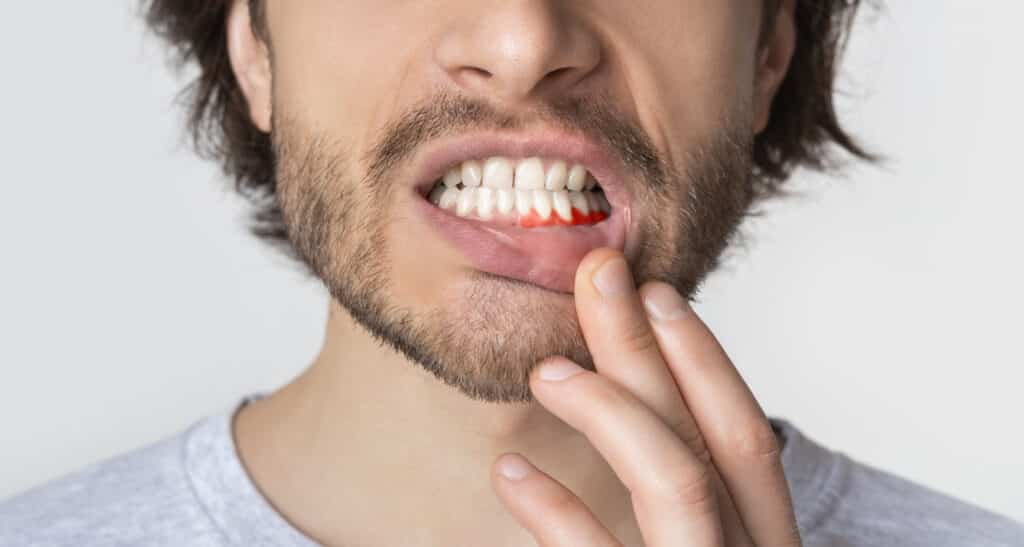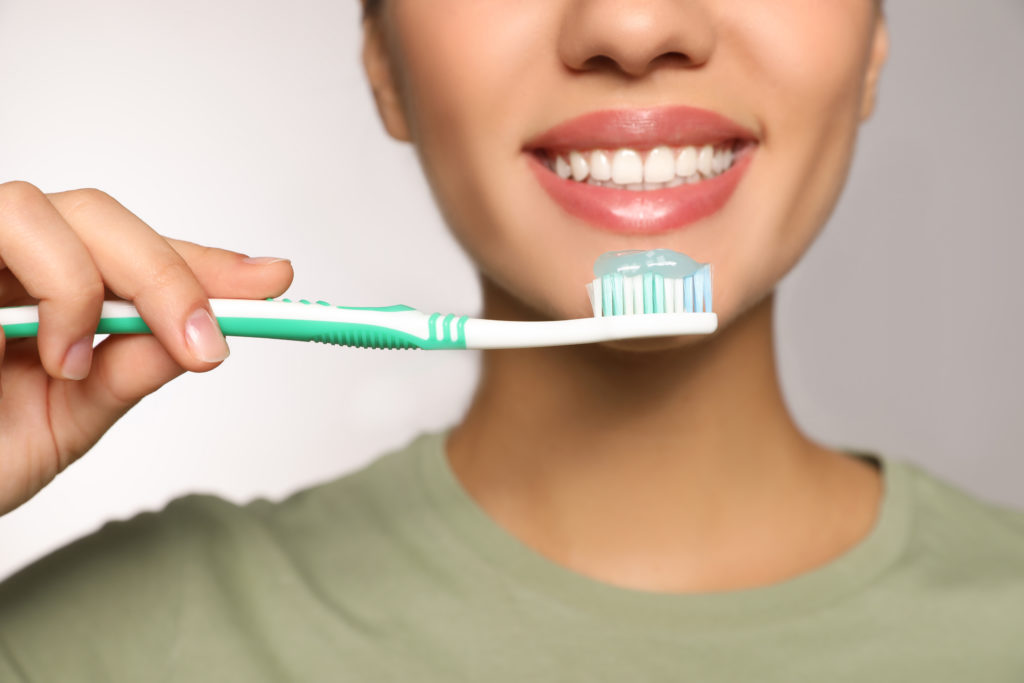
Bleeding gums are an incredibly common ailment, but they are certainly not something you should ignore. It is crucial to pay attention when you notice that your gums are bleeding to determine the root cause of the issue. This can help you take the right steps to resolve this condition and protect your oral health.
Causes of Bleeding Gums
Diabetes
Diabetes often causes a reduction in immune function, commonly resulting in bleeding gums. This increases your likelihood of developing infections. When an infection sets in, gums will likely bleed. Bleeding gums may be an early warning sign of diabetes, so make sure you visit our office if you are experiencing long-term issues with bleeding gums.
Pregnancy
The hormonal changes that come with pregnancy can lead to an increased risk of many oral health problems, including gingivitis. Pregnant women must take additional steps to optimize their dental hygiene and prevent oral health problems.
Gum Disease

Gingivitis is the beginning stage of gum disease. This disease develops when plaque and bacteria are allowed to build up on the teeth and under the gum line, causing swelling, infection, and bleeding. In many situations, improving your oral hygiene routine will be sufficient to reduce bleeding gums and fight the development of gingivitis. However, visiting us for more guidance in clearing up your gingivitis and restoring your oral health is still important.
Periodontal disease, or periodontitis, occurs when gingivitis is allowed to progress without treatment. This disease is often long-term and causes damage to oral tissues and bones. Without proper care, periodontitis can lead to tooth loss. It is critical to visit our office for the appropriate treatment when your gum disease has reached the periodontitis stage.
Individuals over 30 years old tend to have an increased risk of gum disease. Other risk factors include excessive amounts of stress, certain medications, genetics, and smoking regularly. If you are at increased risk of developing gum disease, it’s extremely important to familiarize yourself with the causes of gum bleeding and take extra care to prevent it.
Vitamin K or C Deficiency
Bleeding gums may mean you have a vitamin K or C deficiency. By increasing your consumption of these vitamins, you may be able to resolve your bleeding gums. This can be particularly beneficial if you have improved your oral hygiene routine but haven’t seen a reduction in your bleeding gums.
Ill-Fitting Dentures
Dentures that don’t fit properly can cause significant damage to the interior of the mouth. These ill-fitting dentures can rub against the gums, leading to painful sores. If you wear dentures and are experiencing bleeding gums, it is possible that your dentures aren’t a great fit for your mouth and are causing your gums to bleed.
Brushing Too Hard
Many people think that the harder they brush their teeth, the cleaner their teeth will be, but this isn’t necessarily the case. When you brush your teeth too hard, you may damage your tooth enamel and gums. Check your toothbrush for signs that you are brushing too hard. If the bristles are bent or frayed, but the toothbrush is relatively new, it is likely that you need to try a gentler approach.
Medications
Certain medications have blood-thinning properties, making you bleed more easily. If you notice that your gums begin to bleed around the same time that you begin taking a new medication, it is possible that the medication is the cause. Consult with us and your doctor to determine whether your medication is the root cause of your bleeding gums and if adjustments need to be made.
Flossing
Flossing is one of the most common causes of bleeding gums. This occurs when you begin a new flossing routine or resume flossing after missing a few days. It is crucial to floss on a regular basis to remove plaque and food particles from beneath the surface of your gums. If you have just started flossing your teeth and are experiencing bleeding gums, it is likely an indication that you need to floss more often.

Prevent Bleeding Gums
Following a good oral hygiene routine can help reduce the likelihood of gum disease and other oral health problems. You can also prevent bleeding gums by:
- Limiting your snacking in between meals, which minimizes food particles on the surface of the teeth
- Rinsing with salt water daily to reduce inflammation
- Switching to a soft-bristled toothbrush will help to prevent overbrushing
- Avoiding sugary foods and drinks
- Quitting smoking or chewing tobacco
Find Relief from Bleeding Gums
If your gums are bleeding, you will first need to determine what those bleeding gums mean. The right steps to resolve the bleeding gums will depend on the underlying cause. Following a consistent, effective oral hygiene routine is critical to keep your teeth and gums healthy. If you are unsure how to address your bleeding gums, visit us at Leavitt Dentistry today!

